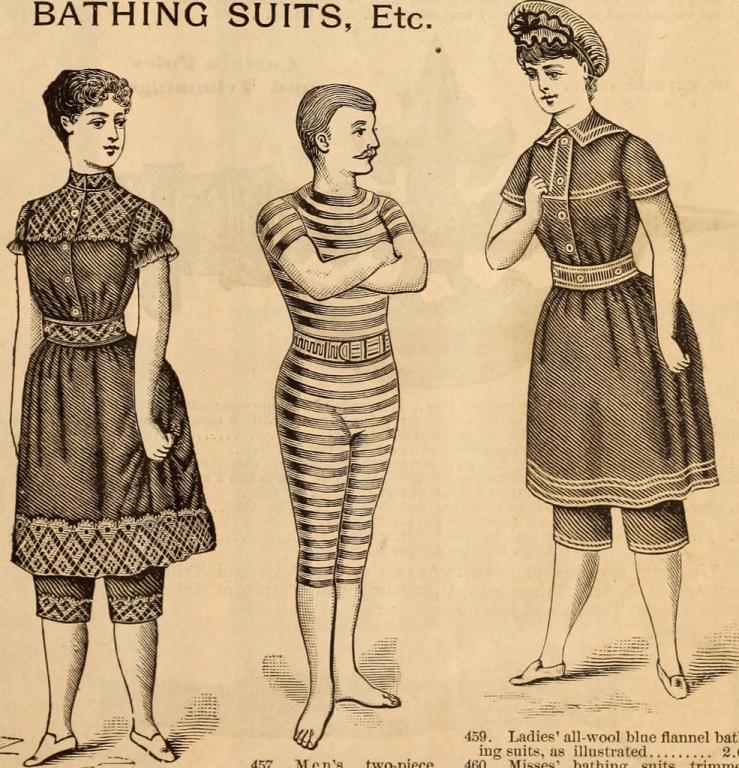Surely you have heard a faux apology something like this: “I’m sorry if you were offended by [what ever it is that I did that should certainly not have upset you], deflecting all the blame onto someone else?
Or perhaps an apology something like this: “I’m sorry you got hurt but if you hadn’t [provoked me, started it, tempted me, not responded the way I wanted you to respond, questioned my authority, etc.], then I would not have had to do that” again shifting all the blame to the one(s) who experienced the hurt or destruction.

I went shopping for a bathing suit the other day. Sigh. Truly, women of any age have complex relationships with bathing suits. Fortunately, when you get to my age, it becomes more, “Bodies are what bodies are and mine is still alive and functioning, so deal with it.” Even so, this particular shopping task is rarely a pleasant experience.
But . . . travels loom, a trip that will take us deep into the tropics. I had to have something. The current one has lost its luster–and elastic.
I waded bravely into a store that specializes in beachwear and immediately engaged with a talented saleswoman. She grasped within seconds what I wanted. After getting her feedback (we agreed I didn’t look THAT bad for someone approaching 70), I said I’d buy it.
She then asked, “What about a cover-up?”
I laughed and said, “No thanks. Women my age specialize in cover-ups. I’m well supplied.”
And there you have it: that fundamental part of human nature that, for all its short-term utility, may end up causing so much damage. The cover-up.
The Original Cover-Up
Come with me to that piece of brilliant exploration in the Bible of the human condition: the early Genesis story of the first man and the first woman, planted in a vibrant, productive garden to tend and keep, besotted with one another, in equal and loving partnership.
Only one tiny little limitation on their lives: recognize that God is God and they are not. Enjoy life to the fullest but observe holy boundaries. Be aware of human limitations and resist the temptation that is common to all: to relegate The Holy One to the position of being the heavenly butler, the celestial Santa Claus, there only to do our bidding.
The man and the woman, standing jointly together, fail the test. Together, they trade the truth for a lie. Together, they move from knowing the goodness of God to believing God is evil and about denying them the stuff they want.
The man cleverly stays silent, refusing to stand up to evil. He waits for the woman to take the fall. She does not disappoint.
Together, they eat. Together, their eyes open. Together, they feel shame. Together, they cover up. Together, they hide from God and from each other.
When the time for accountability appears, when exposure becomes inevitable, they refuse the necessary apology but plunge into the blame game.
The man? “She, the one you created, gave it to me. Not my fault. All her fault.”
The woman? “The serpent (with the implication: the one you created), tempted me. Not my fault. All the serpent’s fault.”
The serpent? Well, it has stopped talking by then and, forever out of favor with humanity, silently slithers away.
We hide, and we blame when exposure brings shame. It’s the human condition.
 The Faux Apology
The Faux Apology
Surely you have heard a faux apology something like this: “I’m sorry if you were offended by [what ever it is that I did that should certainly not have upset you]”, words that deflect all the blame onto someone else.
Or perhaps something like this: “I’m sorry you got hurt but if you hadn’t [provoked me, started it, tempted me, not responded the way I wanted you to respond, questioned my authority, etc.], then I would not have had to do that” again shifting all the blame to the one(s) who experienced the hurt or destruction.
The cycle consistently repeats: wrongdoing, whether intentional or unintentional, the discovery of it, the accusation, the deflection of blame, the faux apology, the growing frustration and anger on the part of the wronged ones, and NOTHING EVER GETS BETTER.
A Better Way
But it doesn’t have to be that way.
There is another path. It’s the path toward redemption, a road that leads to restoration and the peace of true forgiveness, a journey that unites, not divides.
It’s called “metanoia”. Another word is “repentance.” Both words mean a radical new alignment in the thinking process of the person who has committed the wrongdoing, whether deliberate or inadvertent.
How does it work? A simple description of the process helps. The next time someone says, “You hurt me” or you become aware that an action in the past was just wrong, pay attention to your immediate reaction. If you have not practiced the art of metanoia, it will be a nearly instantaneous, cover-up/blame response.
Now, instead of acting on the cover-up/blame response, just stop. Breathe slowly. Think. Think about why you want to cover up and blame. More than likely, you are afraid on some level. Fear of exposure, loss, shame, personal and financial repercussions.
At this point, acknowledge the fear and choose life, not death. Choose to heal, not hurt.
Toss away the fig leaves and speak the whole truth without a single word of blame. Watch the transformation from anger to compassion and forgiveness.
We can heal the world in this most simple of ways. However, it will put most attorneys out of business.
Photo credit: Internet Archive Book Images on Visualhunt.com / No known copyright restrictions
Photo credit: Max Crowe on VisualHunt / CC BY-NC

















